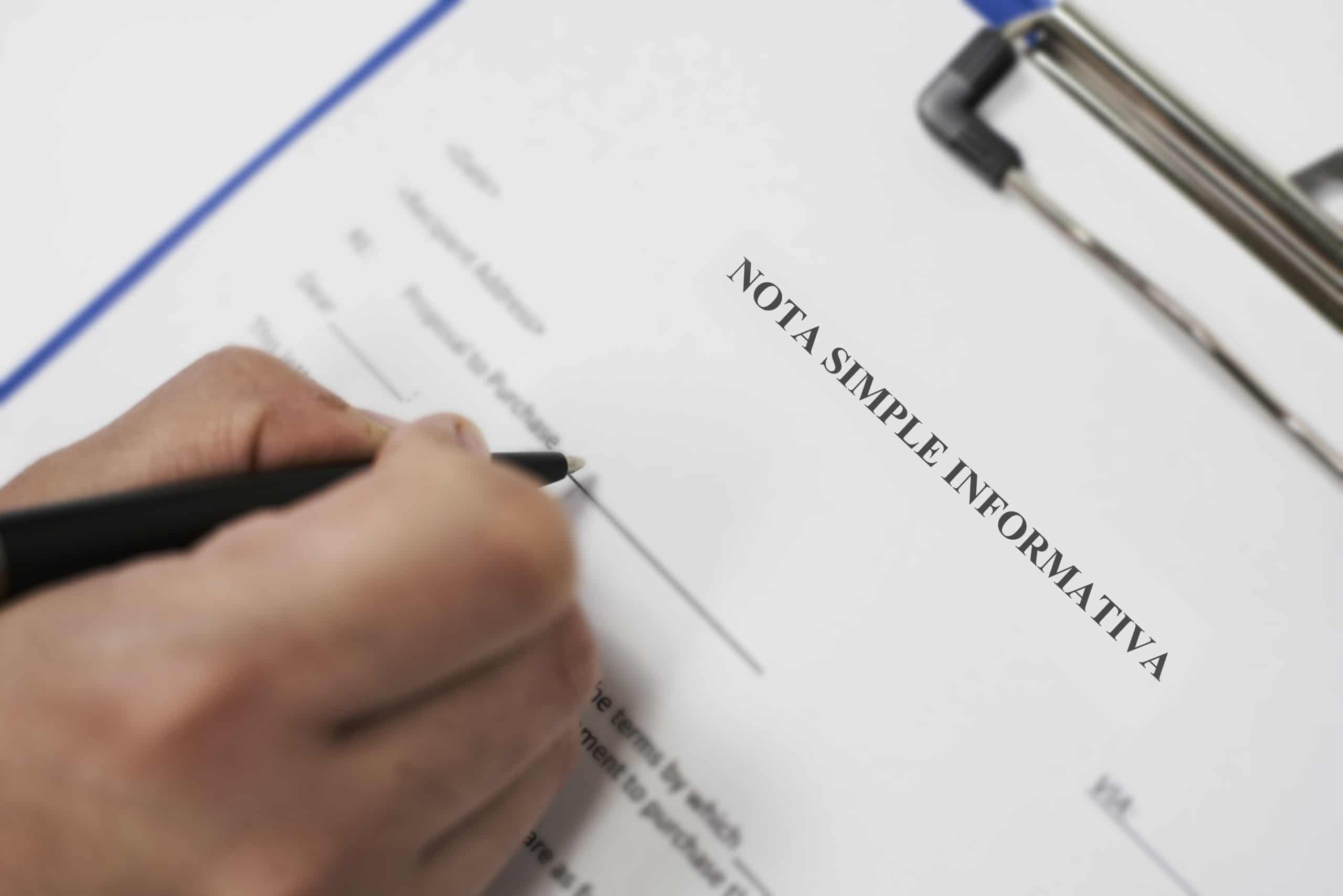Table of contents
What is Spanish Land Registry?Why Land Registry Report is Important?Why Spanish Land Registry is Important?What are the Functions of the Spanish Land Registry?What are the Uses of the Spanish Land Registry?What are the Benefits of Registering a Property?Understanding the Land Registry System in SpainHow to Get Nota Simple?Conclusionlooking to buy a home?
Submit this Form and Benefit from our 25 Years' Experience & Strong Local Network.The Spanish real estate market has long been a desirable destination for both foreign investors and vacationers. Its stunning coastline, pleasant weather, and laid-back lifestyle make Spain an appealing option. However, it is crucial to ensure all legal requirements are met when investing in property, and this is where the Spanish Land Registry plays a key role.
In this article, Realista will discuss the importance of the Spanish Land Registry and how it provides legal security to owners and buyers.
What is Spanish Land Registry?
The Registro de la Propiedad, commonly known as the Spanish Land Registry is a public register that keeps track of all the properties in Spain. It is managed by the Spanish government and is supervised by the Ministry of Justice. The registry is a valuable resource for anyone who is interested in property. It can provide information about the location, size, ownership, and use of a property. This information can be helpful for making decisions about buying, selling, or developing property.
Why Land Registry Report is Important?
When it comes to buying or selling a property in Spain, there is one document that plays a crucial role in the transaction: the land registry report or “nota simple”.
Compared to other nations, Spain places significant importance on the registration of property ownership instead of solely relying on title deeds. Therefore, having a land registry is important.
“Nota Simple” provides information about the property and its legal status, including the name of the registered owner, any existing liens or mortgages, and any restrictions on the property. The land registry report is also essential to verify that the person selling the property is indeed the registered owner and has the right to sell the property.
Why Spanish Land Registry is Important?
- The Spanish land registry is a vital resource for protecting property rights and ensuring secure real estate investments.
- It offers critical information related to property ownership and outstanding debts or liens.
- The Spanish Land Registry can help to verify whether a seller holds title to a property being sold or not.
- A potential owner would want assurance that their house does not have any inheritance disputes which can be confirmed through a land registry report or “nota simple”.
- It will provide the property development companies with all the information about undisclosed construction infractions on plots they seek to purchase and develop further.
What are the Functions of the Spanish Land Registry?
The Spanish Land Registry provides a range of functions that are vital to the real estate industry. These functions include:
Property ownership information: The registry provides information on property boundaries, lot position, classes of land, property size, names of the property owner, rights, and charges that fall on a property.
Legal security: The registry officially recognizes property owners until unproven in court, providing legal security.
Protection against unforeseen fees: A property registered in the land registry safeguards the buyer from a seller’s creditors, protecting them against unforeseen fees that may affect their house.
What are the Uses of the Spanish Land Registry?
The Spanish Land Registry is used in several situations, including:
- Renovating property: The registry can provide information on property boundaries and rights, which may be necessary for planning permission for renovations.
- Purchasing land: The registry can provide details on the dimensions and classification of land, which may be relevant for agricultural purposes.
- Obtaining a bank loan: The registry can provide information on property ownership, which may be required when applying for a bank loan
- Dividing assets between heirs: The registry can provide information on property ownership, which may be necessary for dividing assets between heirs.
- Registering rights of ownership: The registry provides legal recognition of property ownership.
What are the Benefits of Registering a Property?
While it is not obligatory to register a property in Spain, there are many advantages to doing so. These advantages include:
- Single proprietorship: If a court decision does not specify otherwise, you will be treated as a single proprietor.
- Protection against unforeseen fees: A property registered in the land registry safeguards the buyer from a seller’s creditors, protecting them against unforeseen fees that may affect their house.
- Legal recognition of ownership: The registry provides legal recognition of property ownership.
- Clear information about limitations: Information about limitations that affect the home will be clear, preventing any surprises that could affect the property’s value.
- Protection against unauthorized property rights: Registering the purchase in the registry guarantees that no one will be able to get any rights over your property without your approval.
Understanding the Land Registry System in Spain
Spain has a strong two-tier system in place to protect property ownership rights, comprising of the notary and land registry. For any property transaction, both the buyer and seller must adhere to specific procedures. This includes appearing before a Notary Public, who will ensure the legality of the transaction. The office will ensure that both parties involved understand the sale terms and conditions.
After that, it becomes necessary for the property to be registered in the Land Registry office. The land registry’s function is to confirm that the sale was executed accurately and to record the new owner’s particulars. This dual-tier mechanism ensures that property transactions are enforceable under the law and that ownership rights are safeguarded.
How to Get Nota Simple?
There are two ways to request a nota simple for a property in Spain. The first way is to ask the property seller for the document. Alternatively, you can contact the registrar directly and provide them with either the registry details or the unique identifier of the registered property (known as the Idufir). This ID number is particularly helpful in locating the document.
To request the nota simple online, you can visit Registradores.org and select the “Registro online” option, followed by “Nota simple de una finca” (non-certified copy of a property). After completing the necessary steps, you will be prompted to pay approximately €10. However, you must demonstrate that we hold a right over the property, such as being an owner or acting on behalf of the owner, an interested party, administrator, or heir.
Conclusion
The Spanish Land Registry plays a pivotal role in ensuring the protection of property owners’ rights. With their comprehensive databases and clear guidelines, they make buying and registering real estate in Spain easier and more transparent. Whether you are looking to invest in a vacation home, rent out the property, or simply want to live here full-time, being familiar with how the Spanish Land Registry works could save you trouble and unforeseen expenses down the road.



